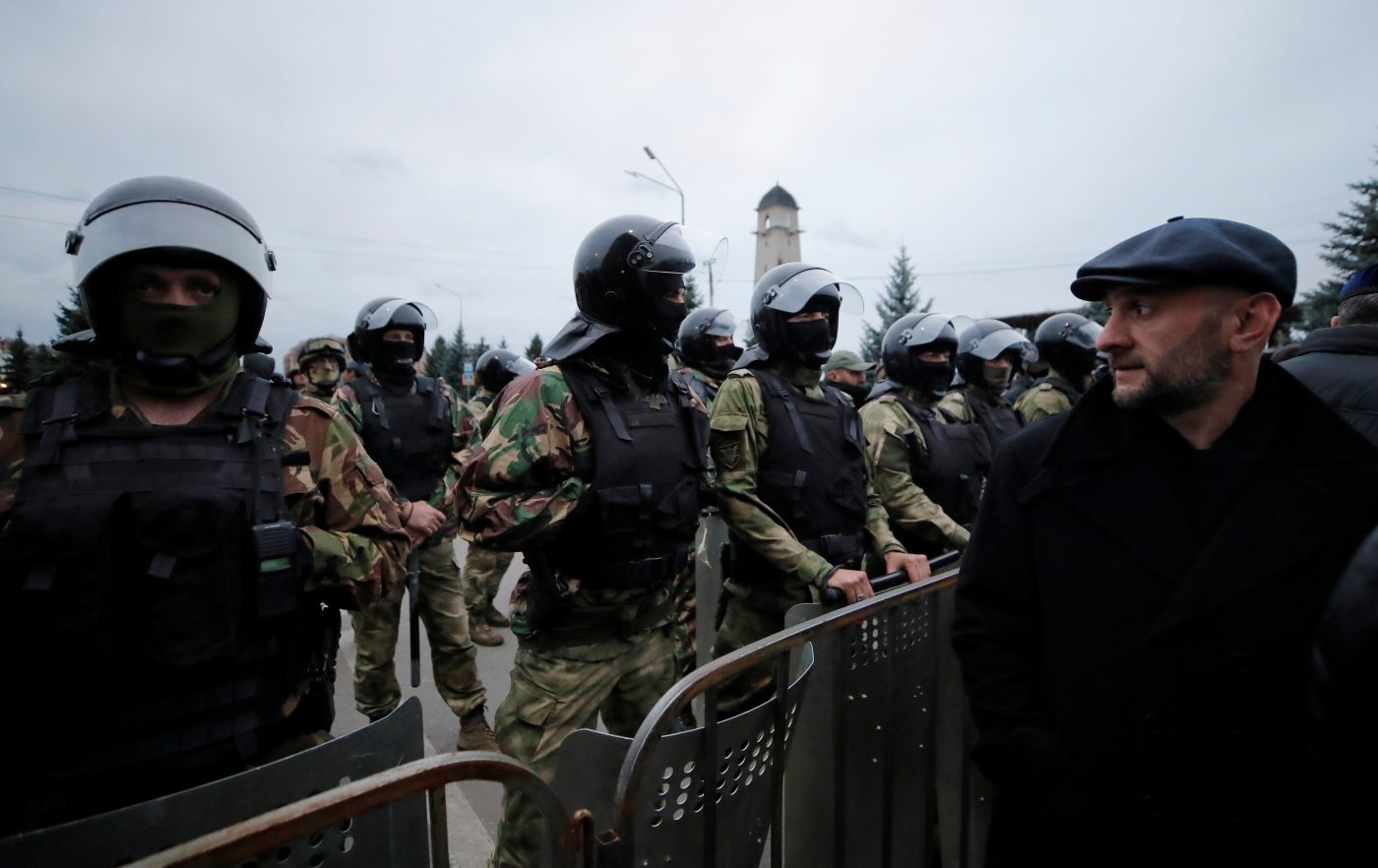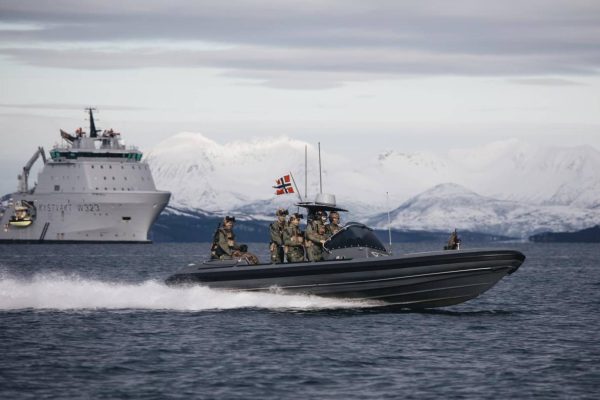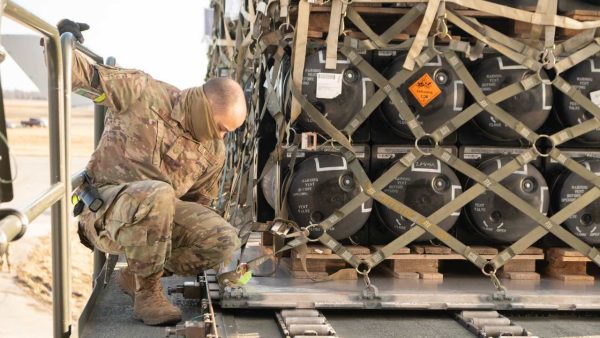In September 2019, Albert Razin, a 79-year-old scientist and activist, set himself on fire outside the Udmurtian parliament in Izhevsk, about 1,000km (600 miles) east of Moscow. It was his final protest against the suppression of the Udmurt language in Russia.
“The Udmurt ethnicity is disappearing, and I cannot stand seeing it,” Razin said in a statement shortly before his death. “I wish all nations to be eternal, all languages to be great. They should be cultivated; live and not die.”
The Udmurts are one of 195 nationalities that make up the Russian Federation’s population of 147 million people, according to the 2020-21 census. About 50 of these groups are small, numbering fewer than 50,000 people, according to Rosstat, the Federal Service for State Statistics.
In recent years, their situation has deteriorated, and inequality between the best- and worst-off groups has increased. This may help to explain a sharp growth in the number of people avoiding the ethnicity question in census returns. More than 9.5 million didn’t specify their nationality, while a further 7 million refused to answer outright, three times more than in the 2010 census.
The message to minorities is clear. The head of Russia’s Federal Agency for Ethnic Affairs (FADN), Igor Barinov, is a former FSB officer who took part in Russia’s bloody suppression of the Chechen independence movement in the 1990s. An advocate of internet censorship, his approach to ethnic affairs lays greater emphasis on counter-terrorism than protecting indigenous rights. Under his leadership, FADN has created a register of representatives of indigenous peoples, much like China’s Uyghur registry.
The state has meanwhile rolled back post-Soviet advances. One of the most striking blows came in the form of an amendment to the Russian Constitution in 2020, which designated the Russian language as the “language of the state-forming people.” This overturned the 1993 constitution’s assumption that the multiple nationalities of the Russian Federation were equal.
Although the amendment attracted less attention than the new constitution’s implications for Putin’s ability to stay in power or the effective ban on same-sex unions, a number of politicians and officials did voice their opposition.
Refat Chubarov, head of the exiled Mejlis of the Crimean Tatar people, denounced it as a way to make indigenous people second-class citizens and a step towards “the Russification of Yakuts, Bashkirs, Kazan Tatars, and others.” The All-Tatar Public Center called on citizens to boycott the vote on the constitution in protest.
Two years earlier, the State Duma had amended education legislation to abolish the compulsory study of indigenous languages in secondary schools.
Twenty-five languages are on the verge of extinction in Russia, while another 19 are characterized as endangered, according to data published in 2020. And languages that are not in such a critical situation have been affected by the Kremlin’s Russification policies.
Between 2002 and 2010, the number of Udmurt speakers decreased by 30%, to just 324,000, Radio Svoboda reported, citing census data. The number of Tatar speakers fell by a million to 3.6 million over the same period. According to the UNESCO Atlas of Languages in Danger, Udmurt may disappear within a century if no changes are made.
Olga Kalo, a member of the Feminist Anti-War Resistance movement, which won the 2023 Aachen Peace Prize, said the Russian government is making the situation worse.
In practice, a lot depends on individual teachers and schools, she said. While school principals can’t refuse to include mathematics in the curriculum, they can refuse to teach regional ethnic minority languages if they say it is unimportant for staff and parents.
Indigenous people’s rights deteriorated further with the full-scale invasion of Ukraine and the resulting mobilization, which confirmed the existing inequality between people living in national republics and the rest of the country.
Human rights activists have condemned the mobilization in the republic of Buryatia as ethnocide. “Everyone is just being pressed indiscriminately,” Alexandra Garmazhapova, head of the Free Buryatia Foundation, told the BBC.
The situation in Buryatia has been repeated in other republics as Moscow ensures conscription summonses are distributed in a way that protects the “state-forming people” while sending disproportionate numbers of non-Russian ethnic groups to the trenches.
“In many of the Eastern regions, deaths are likely running, as a percentage of the population, at a rate 30+ times higher than in Moscow,” the UK’s Ministry of Defence said in an intelligence briefing in March. “In places, ethnic minorities take the biggest hit; in Astrakhan, some 75% of casualties come from the minority Kazakh and Tartar populations.”
This estimate has been backed up by Mariya Vyushkova and Evgeny Sherkhonov of the Free Buryatia Foundation, who reported that Astrakhan Kazakhs make up 50% of casualties from the Astrakhan region despite being only 16.3% of the population.
Putin denounced the European Convention for the Protection of National Minorities in October, taking a further step towards the legitimization of cultural assimilation and inequality. The convention prohibits discrimination against national minorities and assimilation against their will while protecting their right to use their own language.
Russia has not fulfilled its promises and obligations under the convention, so its denunciation can be seen as symbolic, but activists say it strips them of the opportunity to criticize the government by comparing Moscow’s actions to the convention’s principles and formal obligations.
In the face of increased Russification, groups have emerged to support indigenous languages and culture, as well as combating xenophobia and discrimination. These include the Sova Research Center, Yurt community, Media Resistance Group, Free Kalmykia, Free Yakutia, Asians of Russia, and online language learning projects for minority languages such as Tatar and Mari.
Decolonization in Russia is currently not an ethnic movement but a regional one, according to Olga Kalo, from the Feminist Anti-War Resistance. People of all origins and ethnicities are working together to help the regions.
In response, the Kremlin is exploiting the anti-colonial ideas now rooted in many Western universities, to whitewash its policies. Authorities have organized events under the banner of cultural diversity and the preservation of local cultures, but they are accompanied by military conscription units, Kalo said.
A silver lining is that the suppression of legal and cultural rights has gone hand-in-hand with the creation of grassroots initiatives to protect national identities, she added. Structural changes to the current regime may seem impossible at the moment, but if change is to come, it may start in the oppressed far-off regions.
Elina Novopashennaia is a journalist and student at Freie Universität Berlin. She has studied at the High School of Economics in Moscow, Saint-Petersburg State University, and Humboldt University of Berlin. Since 2018, she has been writing articles about society, culture, and history in Russian independent newspapers and Deutsche Welle.
Mykyta Vorobiov is a political adviser, journalist, and political science student at Bard College Berlin. For the last two years, he has been developing articles on politics and law for VoxEurop, JURIST, CEPA, and others.
Europe’s Edge is CEPA’s online journal covering critical topics on the foreign policy docket across Europe and North America. All opinions are those of the author and do not necessarily represent the position or views of the institutions they represent or the Center for European Policy Analysis.





